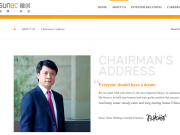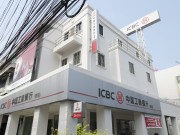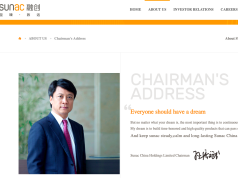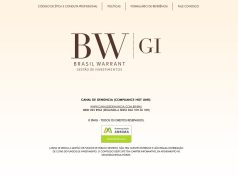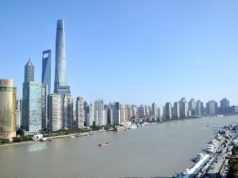Schroders Institutional Investor 2023 Report: 770 Investors with $34.7 trillion AUM, Top 5 Private Assets Allocation Increase – Private equity 44%, Infrastructure 42%, Corporate Private Lending 39%, Real Asset Private Lending 31%, Alternative Credit 28%, Top 3 Factors Impacting Portfolio Geopolitical Uncertainty, Inflation, Tapering of Monetary Policy
20th October 2023 | Hong Kong
Schroders has released the Institutional Investor Study 2023 Global Report, providing key insights into 770 institutional investors with $34.7 trillion AUM (Assets under Management) from corporate & public pension plans, insurance companies, official institutions, endowments and foundations. For institutional investors, the top 5 factors impacting portfolio in next 12 months are Geopolitical uncertainty 55%, Rising inflation 53%, Tapering of monetary policy 48%, Stagflation 43%, Demographic trends 39%. The Top 5 Private assets allocation in next 12 months (Increase) are Private equity 44%, Infrastructure 42%, Corporate private lending 39%, Real asset private lending 31%, Alternative credit 28%. The Top 5 Preferred Private assets allocation investment themes are Technological revolution 54%, Energy transition & decarbonization 53%, Changing demographics 38%, Growth of emerging & frontier markets 34%, Sustainable lifestyles 26%. Top 5 reasons for investing in sustainablility & impact strategies – long-term financial returns 64%, Portfolio diversification & expand to new themes / asset classes 62%, Align portfolio with legal & regulatory directives 60%, Request to reduce the risk of the portfolio 58%, Request (staff, retirees, Board, shareholders) to align with their sustainability values 54%. Top 5 Asset class to deliver sustainability & impact objectives – Infrastructure 44%, Natural capital & biodiversity 41%, Private equity 39%, Private debt 27%, Real estate 25%. Top 5 asset classes for investments (Decarbonization / Energy transition) – Infrastructure/Renewables – 46%, Equities (DM) 31%, Commodities 24%, Private equity 24%, Equities (EM) 19%. Top 5 Preferred approach to sustainable investing – Thematic 61%, Impact 59%, Exclusion of certain activities & sectors 54%, Engagement & voting 52%, Integration 40%. Firm made commitment to Net Zero by 2050 – Yes 50%, No 50%. Top 5 Importance of active ownership – Corporate governance 71%, Climate change 58%, Human capital management 47%, Diversity & inclusion 44%, Human rights 41%. See below for key findings & summary | View report here
“ 770 Investors with $34.7 trillion AUM, Top 5 Private Assets Allocation Increase – Private equity 44%, Infrastructure 42%, Corporate Private Lending 39%, Real Asset Private Lending 31%, Alternative Credit 28%, Top 3 Factors Impacting Portfolio Geopolitical Uncertainty, Inflation, Tapering of Monetary Policy “
Johanna Kyrklund, Schroders Group CIO & Co-Head of Investment: “Markets continue to be caught in the cross currents of concerns about rate increases and worries about recessionary risks. The Study found that institutional investors’ allocations to equities may look to increase as they intend to capitalize on the opportunities presented by the deglobalization, decarbonization and demographic trends. With concerns about high inflation and high interest rates, valuations matter. A renewed focus on valuations rather than speculative growth may be required. More broadly, in terms of the impact on portfolio performance, the Study found that a number of issues are increasingly on the radar of investors: rising inflation, hawkish monetary policy stances, global conflicts and stagflation. These are all factors that Schroders as an active manager is also looking to navigate on behalf of its clients globally. We believe it’s time to be discern.”
Schroders Institutional Investor 2023 Report

Schroders has released the Institutional Investor Study 2023 Global Report, providing key insights into 770 institutional investors with $34.7 trillion AUM (Assets under Management) from corporate & public pension plans, insurance companies, official institutions, endowments and foundations.
Summary:
- Institutional investors – 770 with $34.7 trillion AUM
- Top 5 factors impacting portfolio in next 12 months – Geopolitical uncertainty 55%, Rising inflation 53%, Tapering of monetary policy 48%, Stagflation 43%, Demographic trends 39%
- Top 5 best asset classes for investments (De-globalization) – Equities (DM) 32%, Infrastructure/Renewables 24%, Equities (EM) 23%, Private equity 23%, Commodities 22%
- Top 5 Private assets allocation in next 12 months (Increase) – Private equity 44%, Infrastructure 42%, Corporate private lending 39%, Real asset private lending 31%, Alternative credit 28%
- Top 5 Preferred Private assets allocation investment themes – Technological revolution 54%, Energy transition & decarbonization 53%, Changing demographics 38%, Growth of emerging & frontier markets 34%, Sustainable lifestyles 26%
- Top 5 benefits for investing in private assets – Access deeper source of diversification 60%, Lower volatility 53%, Achieve higher returns than public markets 53%, Deliver specific sustainability & impact objectives 48%, Generate a steady income 44%
- Top 5 reasons for investing in sustainablility & impact strategies – Long-term financial returns 64%, Portfolio diversification & expand to new themes / asset classes 62%, Align portfolio with legal & regulatory directives 60%, Request to reduce the risk of the portfolio 58%, Request (staff, retirees, Board, shareholders) to align with their sustainability values 54%
- Top 5 Asset class to deliver sustainability & impact objectives – Infrastructure 44%, Natural capital & biodiversity 41%, Private equity 39%, Private debt 27%, Real estate 25%
- Top 5 asset classes for investments (Decarbonization / Energy transition) – Infrastructure/Renewables – 46%, Equities (DM) 31%, Commodities 24%, Private equity 24%, Equities (EM) 19%
- Top 5 Preferred approach to sustainable investing – Thematic 61%, Impact 59%, Exclusion of certain activities & sectors 54%, Engagement & voting 52%, Integration 40%
- Most important criteria to select impact investment- Easily measured & understood 60%
- Firm made commitment to Net Zero by 2050 – Yes 50%, No 50%
- Top 5 Importance of active ownership – Corporate governance 71%, Climate change 58%, Human capital management 47%, Diversity & inclusion 44%, Human rights 41%
- Top 5 support from external asset managers to reach Active Ownership goals – Conduct research & due diligence 37%, Set clear objectives for active ownership 36%, Take long-term view of driving changes 34%, Build dialogue with company management 32%, Adapt engagement strategy to improve results 30%
Profile:
- No. of Institutional investors – 770
- AUM – $34.7 trillion
Type of Institutional investors:
- Corporate Pensions – 32%
- Public & Government Pensions – 26%
- Life Insurance Co. – 14%
- Non-life Insurance Co. – 11%
- Endowments – 6%
- Foundations – 6%
- Official Institutions – 4%
AUM (Assets under Management):
- Less than $1 billion – 15%
- $1 billion to $10 billion – 32%
- $10 billion to $100 billion – 36%
- $100 billion to $500 billion – 13%
- $500 billion & above – 4%
Region:
- North America – 26%
- Latin America – 4%
- EMEA (Includes UK) – 45%
- APAC – 25%
Schroders Institutional Investor 2023 Report
1) Institutional Investors Insights:
Top 12 Factors impacting portfolio in next 12 months:
- Geopolitical uncertainty – 55%
- Rising inflation – 53%
- Tapering of monetary policy – 48%
- Stagflation – 43%
- Demographic trends – 39%
- Decarbonization- 36%
- Oil prices – 34%
- Deglobalization – 31%
- Increased regulatory pressure – 29%
- Rise in populist policies – 26%
- Cyber attacks – 21%
- Pandemics – 16%
Impact of de-globalization for institutional investors on global economy & asset allocation:
- Invest in companies with more localized supply chains – 52%
- More exposure into private markets & alternatives to capture innovation in productivity-enabling technologies – 49%
- De-globalization a threat to the global economy (global economy in stagflationary direction) – 34%
- More exposure into small cap stocks with a domestic production base – 31%
Top 5 Best asset classes for investments over next 2 to 3 years (De-globalization):
- Equities (DM) – 32%
- Infrastructure/Renewables – 24%
- Equities (EM) – 23%
- Private equity – 23%
- Commodities – 22%
DM ~ Developed Markets, EM ~ Emerging Markets
2) Private Assets
Top 6 benefits for investing in private assets (now):
- Achieve higher returns than public markets – 65%
- Access deeper source of diversification – 64%
- Lower volatility – 54%
- Generate a steady income – 40%
- Deliver specific sustainability & impact objectives – 39%
- Hedge against inflation – 37%
Top 6 benefits for investing in private assets in 2 years time (2025):
- Access deeper source of diversification – 60%
- Lower volatility – 53%
- Achieve higher returns than public markets – 53%
- Deliver specific sustainability & impact objectives – 48%
- Generate a steady income – 44%
- Hedge against inflation – 42%
Private assets allocation in next 12 months (Increase):
- Private equity – 44%
- Infrastructure – 42%
- Corporate private lending – 39%
- Real asset private lending – 31%
- Alternative credit – 28%
- Real estate – 27%
- Natural capital – 26%
Private assets allocation in next 12 months (No Change):
- Private equity – 48%
- Infrastructure – 53%
- Corporate private lending – 57%
- Real asset private lending – 64%
- Alternative credit – 66%
- Real estate – 60%
- Natural capital – 70%
Private assets allocation in next 12 months (Decrease):
- Private equity – 8%
- Infrastructure – 5%
- Corporate private lending – 5%
- Real asset private lending – 5%
- Alternative credit – 6%
- Real estate – 13%
- Natural capital – 4%
Top 6 Preferred Private assets allocation investment themes:
- Technological revolution – 54%
- Energy transition & decarbonization – 53%
- Changing demographics – 38%
- Growth of emerging & frontier markets – 34%
- Sustainable lifestyles – 26%
- None of the above – 9%
3) Sustainable Investments
Top 5 reasons for investing in sustainability & impact strategies:
- Required to achieve long-term financial returns – 64%
- Achieve portfolio diversification & expand to new themes / asset classes – 62%
- Align portfolio with legal & regulatory directives – 60%
- Request to reduce the risk of the portfolio (eg. shift to climate-aligned investment opportunities) – 58%
- Request (staff, retirees, Board, shareholders) to align with their sustainability values – 54%
Top 5 Asset class to deliver sustainability & impact objectives (plays a major role):
- Infrastructure – 44%
- Natural capital & biodiversity – 41%
- Private equity – 39%
- Private debt – 27%
- Real estate – 25%
Top 5 Asset class to deliver sustainability & impact objectives (plays a major role) in 2 years time:
- Infrastructure – 55%
- Natural capital & biodiversity – 51%
- Private equity – 48%
- Private debt – 33%
- Real estate – 38%
Potential outcomes due to climate initiatives & investment:
- Energy transition spur investment in innovation – 67%
- Shortage of key minerals and metals for green technology add to inflationary pressures (greenflation) – 61%
- Stricter carbon pricing will be inflationary for at least the next 10 years (heavy reliance on fossil fuels, inflationary pressures through fossilflation) – 55%
- Introduction of carbon pricing schemes & carbon taxes – 54%
- Climate legislation will help convert politics into concrete action – 51%
- Climate change will prompt investors to consider more sustainability & impact strategies (eg portfolio decarbonization) – 50%
Top 5 asset classes for investments over next 2 to 3 years (Decarbonization / Energy transition):
- Infrastructure/Renewables – 46%
- Equities (DM) – 31%
- Commodities – 24%
- Private equity – 24%
- Equities (EM) – 19%
- DM ~ Developed Markets, EM ~ Emerging Markets
Top 6 Preferred approach to sustainable investing:
- Thematic – 61%
- Impact – 59%
- Exclusion of certain activities / sectors – 54%
- Engagement & voting – 52%
- Integration – 40%
- Carbon offsetting – 33%
Most important criteria to select impact investment:
- Easily measured & understood – 60%
- Issues that are important to our ESG approach – 53%
- Benefit to our stakeholders – 53%
Your firm made commitment to achieve net zero (greenhouse gas emissions) from your investment portfolio by 2050:
- Yes with actions – 29%
- Yes and no actions – 10%
- Yes but after 2050 – 11%
- Not to net zero, but have committed to reduce emission – 11%
- No, but drafting plans – 19%
- No, and no intention currently – 21%
4) Active Ownership
Top 7 Importance of active ownership:
- Corporate governance – 71%
- Climate change – 58%
- Human capital management – 47%
- Diversity & inclusion – 44%
- Human rights – 41%
- Natural capital & biodiversity – 37%
- Other – 2%
Engagement strategy most important to you (Active ownership):
- Evidence of real-world outcomes with a measurable improvement for a company’s stakeholders – 56%
- Evidence of improved financial performance – 44%
- Greater transparency on content & progress of engagements – 43%
- Clear & detailed engagement policy with time-bound expectations – 41%
- Understanding how engagement has informed investment decisions – 38%
- Consistently doing to drive change – 27%
- Clear & robust escalation plan for stalling or unsuccessful engagements – 25%
- Use of public statements on key sustainability issues – 19%
- None of the above – 3%
Top external support & help for your organisation to reach net zero goal:
- Support in measuring & tracking our net zero path – 51%
- More consensus around frameworks & methodology to measure net zero pathways – 49%
- Guidance from regulators on what is needed – 43%
- More transparency around alignment of funds to net zero objectives – 41%
- Education around net zero and what it means for investments – 37%
- None of the above – 2%
Top 5 support from external asset managers to reach Active Ownership goals:
- Conducting thorough research & due diligence – 37%
- Setting clear objectives for active ownership – 36%
- Taking a long-term view of driving changes – 34%
- Building a dialogue with company management – 32%
- Adapting an engagement strategy to improve results over time – 30%
Schroders Institutional Investor Study 2023 Global Report
Schroders annual Institutional Investor Study analyses the investment perspectives of 770 global institutional investors on the investment landscape, sustainability and private assets. The respondents represent a spectrum of institutions, including corporate and public pension plans, insurance companies, official institutions, endowments and foundations, collectively responsible for US$34.7 trillion in assets. The research was carried out via an extensive global survey by CoreData Research. Any opinions expressed reflect our Study as of June 2023
About Schroders
Schroders is a global investment management firm with £726.1 billion (846.1 billion; US$923.1 billion) assets under management, as at 30 June 2023. Schroders continues to deliver strong financial results in ever challenging market conditions, with a market capitalisation of circa £7 billion and over 6,100 employees across 38 locations. Established in 1804, the founding family remains a core shareholder, holding approximately 44% of Schroders shares. Schroders has benefited from a diverse business model by geography, asset class and client type. It offers innovative products and solutions across four core growing business areas: asset management, solutions, Schroders Capital (private assets) and wealth management. Clients include insurance companies, pension schemes, sovereign wealth funds, high net worth individuals and foundations. Schroders also manages assets for end clients as part of its relationships with distributors, financial advisers and online platforms. Schroders aims to provide excellent investment performance to clients through active management. It also channels capital into sustainable and durable businesses to accelerate positive change in the world. Schroders business philosophy is based on the belief that if we deliver for clients, we will deliver for our shareholders and other stakeholders. Further information about Schroders can be found at www.schroders.com.hk.
Sign Up / Register
Caproasia Users
- Manage $20 million to $3 billion of assets
- Invest $3 million to $300 million
- Advise institutions, billionaires, UHNWs & HNWs
Caproasia Platforms | 11,000 Investors & Advisors
- Caproasia.com
- Caproasia Access
- Caproasia Events
- The Financial Centre | Find Services
- Membership
- Family Office Circle
- Professional Investor Circle
- Investor Relations Network
Monthly Roundtable & Networking
Family Office Programs
The 2025 Investment Day
- March - Hong Kong
- March - Singapore
- July - Hong Kong
- July - Singapore
- Sept- Hong Kong
- Sept - Singapore
- Oct- Hong Kong
- Nov - Singapore
- Visit: The Investment Day | Register: Click here
Caproasia Summits
- The Institutional Investor Summit
- The Investment / Alternatives Summit
- The Private Wealth Summit
- The Family Office Summit
- The CEO & Entrepreneur Summit
- The Capital Markets Summit
- The ESG / Sustainable Investment Summit


